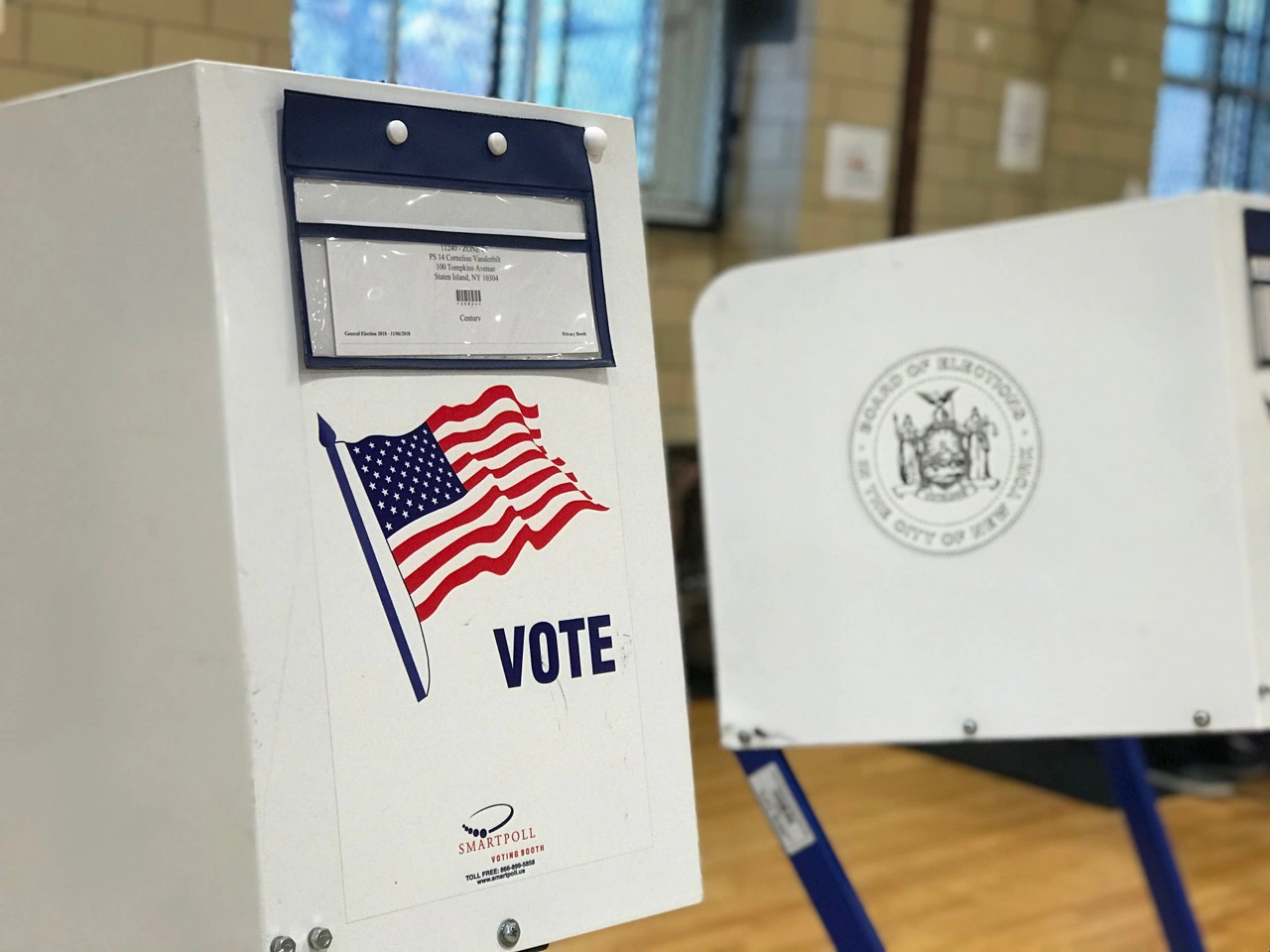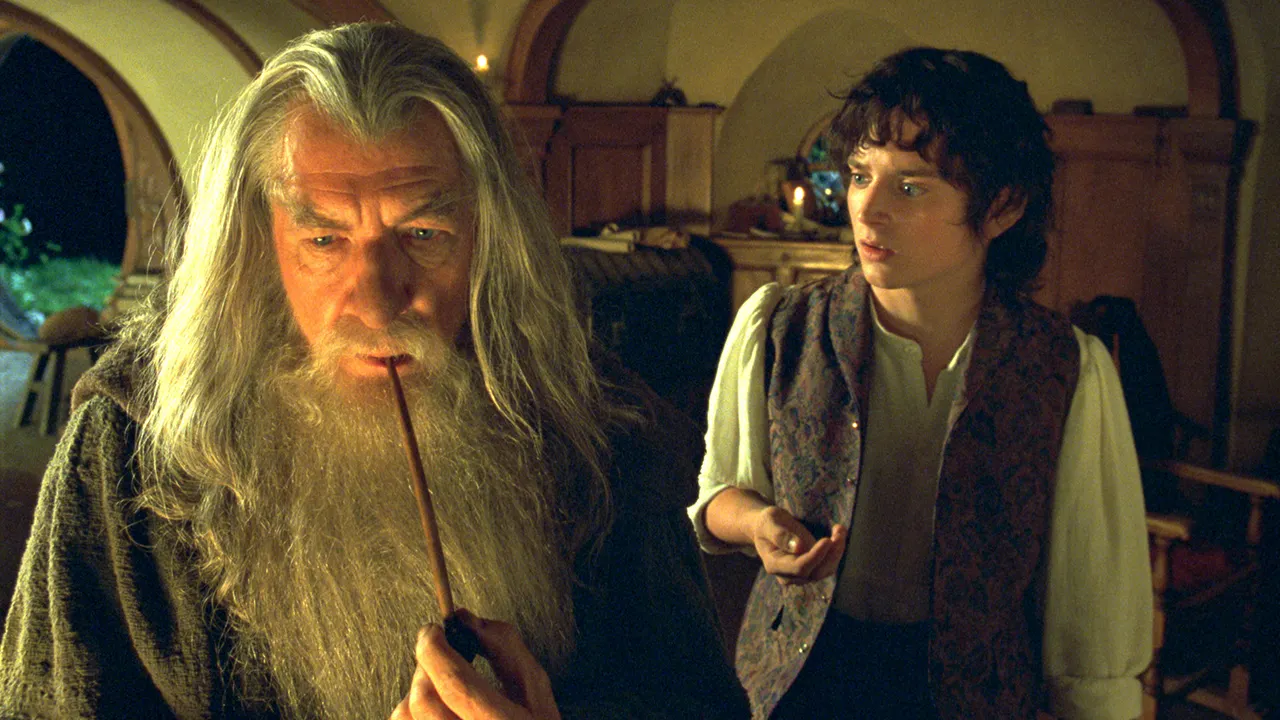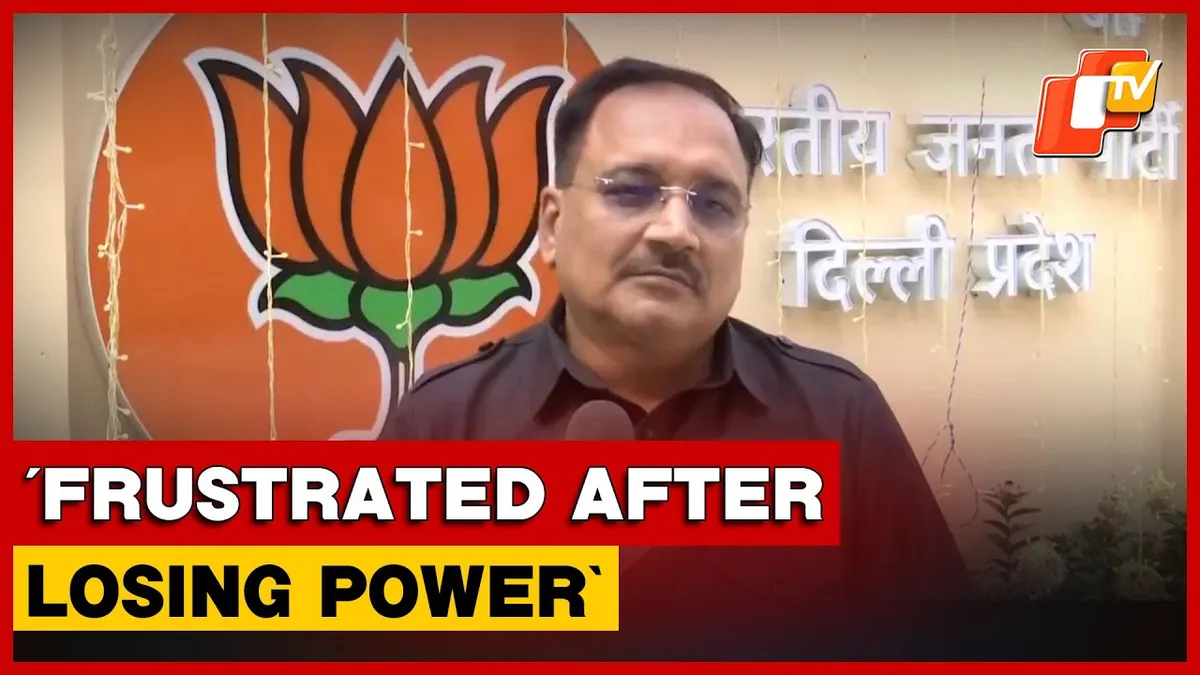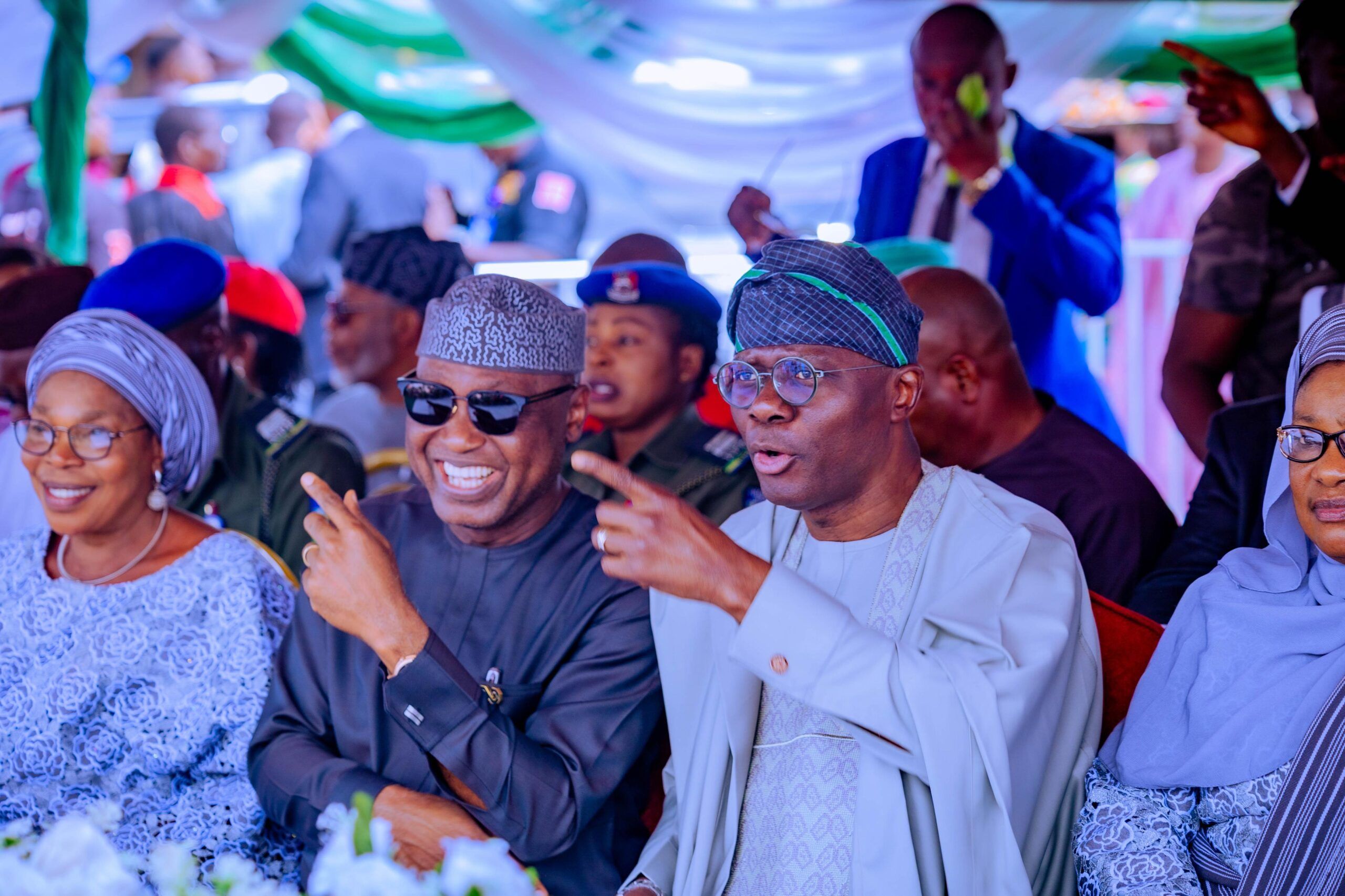Copyright The Boston Globe
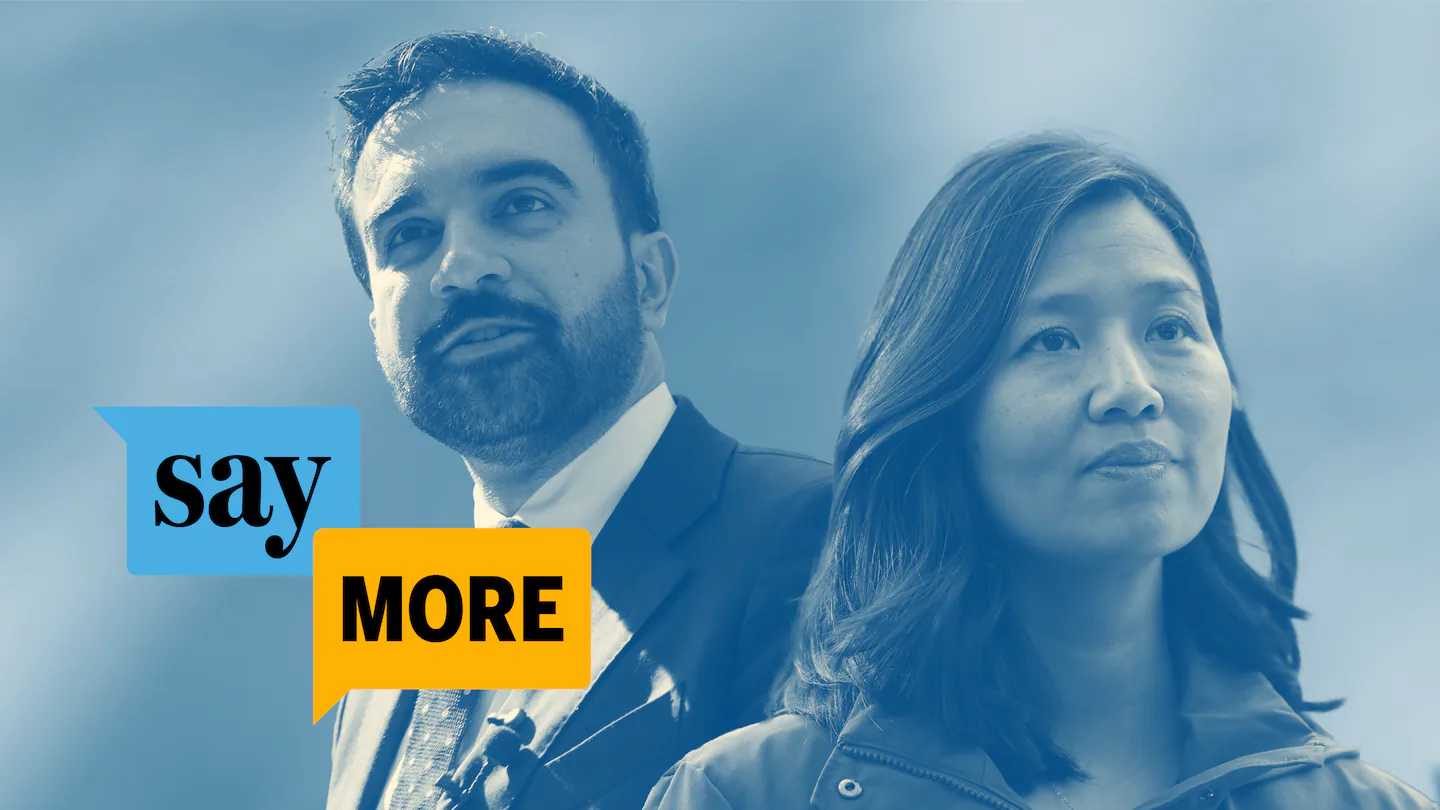
Amazon Music | Apple Podcasts | iHeartRadio | Pocket Casts | Spotify | YouTube The following is a lightly edited transcript of the November 6 episode of the “Say More” podcast. Shirley Leung: Welcome to “Say More” from Boston Globe Opinion. I’m Shirley Leung. This is a special episode of “Say More” because I’m in the studio, our very new studio, with Abdallah Fayyad, who’s the Ideas writer for Globe Opinion. We’re recording a live episode on the Globe Opinion Substack, our very first one, so this is very exciting. Welcome to the studio, Abdallah. Abdallah Fayyad: Thanks for having me, Shirley. Leung: So when Abdallah is not in Boston, he’s living in New York, and this week, Boston and New York have some big political news. Of course, I’m talking about the mayor’s race in both cities. As I’m sure all of you know, here in Boston, Mayor Michelle Wu sailed unopposed into her second term. And in New York, Zohran Mamdani became the first Muslim and the first Democratic Socialist elected mayor. Even here in Boston, we’ve been following. Fayyad: I think everybody’s been following. Yeah. Leung: Yes. It’s been a very exciting week in politics and I’ve been waiting 24 hours to talk to you about this, so what were your biggest impressions of the results from Tuesday night, from the mayoral race in New York? Fayyad: I think my biggest impression is that there’s a lot of energy in the Democratic Party and that the Democratic Party hasn’t necessarily lost young voters. A lot of disillusioned voters that we saw in the 2024 cycle are actually still looking for candidates to vote for, and what Mamdani offered them was a different vision of the Democratic Party, a different vision of New York City, and a different vision of America that they actually felt excited about. He was able to build a broad coalition off of that, but I think critical to his success was turning out these voters who maybe sat out in 2024. Mamdani did offer a model, I think, for a lot of Democrats, in a lot of parts of the country. Maybe it’s not possible to replicate it everywhere, but I think it is a model. His campaign is a model for how to bring young people, particularly young men, back into the fold. It’s a model for how to get disillusioned voters and nonvoters excited to go to the polls. I think there are a lot of answers in his campaign that Democrats should look to. Leung: And now, I was watching his speech. I’m curious to hear what you thought about Mamdani’s speech because, for those of us outside of New York, we’re watching his TikToks. He was like “Mr. Social Media” right? But when I watched his speech last night, he was very serious and defiant. He was a very different kind of Mamdani, not funny, but almost like a Bernie Sanders, very fired up, or Elizabeth Warren, very fired up, very defiant. Fayyad: One of his talents is how he’s able to shift from room to room, audience to audience, and speak to a huge swath of the electorate in ways that they can understand, whether that’s a long-form podcast, a 30-second video on Instagram or a speech at the stump, like he did last night, he’s very effective at communicating in all of these different modes. Last night’s speech just showed how positive he feels, how optimistic he feels, and how buoyed he was by his supporters. Whether that lasts, we’ll see, but that obviously gave him a lot of confidence going into the speech. Leung: And then afterwards I watched Mayor Wu’s remarks and, of course, she had no opponent. She gave a less fiery speech, but still, she went after Trump. But what about Mamdani? Was that something that he did? Kind of use Trump to his advantage? Fayyad: Yeah. I mean, Trump loomed large over the race. Mamdani, throughout the race was positioning himself as the kind of most aggressive, anti-Trump candidate because Eric Adams, the incumbent mayor, had obviously folded to Trump after the Department of Justice dropped their charges against him. Andrew Cuomo was kind of in this awkward dance, kind of courting Trump’s endorsement, but also rejecting it, and Trump eventually endorsed Cuomo. So Mamdani wanted to show that being part of the progressive wing is also being the biggest force against Trump. That’s the message that I think he was trying to send last night. One of the things they mentioned, that I also found really interesting in both races, is the money in the politics. Josh Kraft was very well financed, obviously a billionaire himself. Mamdani in New York was up against the billionaires, more or less, who poured money into the campaign. Michael Bloomberg poured millions of dollars into the campaign to support Cuomo against Mamdani. Bill Ackman poured millions of dollars to support Cuomo, also to sink Mamdani. In Boston, it was kind of like the masks were off there. The actual billionaire was running. But in both races, it was the non “deep-pocketed” candidate that won, and not just won, but they won handily. I think that also says something about the limitations of money and politics, as much as it can distort our elections, there’s still some of these areas where candidates can overcome. Leung: And what we learned during the June primary night in New York, was that Wu and Mamdani know each other, right? I think Wu might have given Mamdani a congratulatory call because they’re very similarly progressive. I didn’t catch this, but you said that Mamdani talked about Wu, right? Fayyad: Yeah, in one of the primary debates, the candidates were asked who they think the most effective Democrat in the country is. He’s clearly looking at her as a model for the progressive wing of the Democratic party and how they can run a city and how they can be an executive, something that the progressive wing of the party has had a lot of trouble with, winning those particular elections. They’ve had success winning legislative seats at the state, local, and the federal level in Congress, but they haven’t really had a big opportunity to run a major bureaucracy. So he’s clearly looking at Wu as somebody who embodies the progressive wing of the party. I think part of their project is not just to win the election, it’s to prove to the Democratic Party, and the broader electorate, that the progressive wing isn’t just capable of campaigning successfully, but they’re actually also capable of governing successfully. It’s to prove that their ideas aren’t just pie in the sky, nice things in an ideal world, but unrealistic in a not so ideal world. When they actually govern those ideas, they are both popular and successful. I think that’s what they’re really trying to do, both Mamdani and Wu in office. Leung: One of the things, here in Boston, is that Wu didn’t accomplish some of her big ideas. She didn’t get rent control done because she had to go through the Legislature. She didn’t make the MBTA free entirely, though she had some successes with a handful of bus lines but, of course, not a forever deal. She has to look for more funding. Do you think Mamdani will succeed on free buses and freezing rent? Fayyad: That’s the question that everybody has on their mind right now is how do you campaign like this and set yourself up for failure, essentially, if you’re promising the world and more? I think there is a level of levelheadedness, a clear-eyed view of what they think they can accomplish. A lot of things are within reach, like Mamdani didn’t propose city-owned grocery stores across the city. He proposed five city-owned grocery stores, one in each borough of New York, and if residents like it, then they’ll expand it, and if they don’t, then maybe they’ll figure out another way to bring grocery prices down. Chances are, it’s not gonna bring grocery prices down that much, but I think the basic premise of their campaigns is that the government can and should do more for you. A lot of Democrats have gotten into the habit of lecturing voters on the limits of what the government can do, that, “We are kind of hamstrung and our hands are tied. We can’t really deliver an agenda that not only will defeat our opponents, but will fundamentally change America for the better.” A lot of Americans are frustrated. A lot of Americans are living without dignity. A lot of Americans are living paycheck to paycheck. That’s in the richest country in the history of the world, as Mamdani often said on the campaign trail. What they are offering, even through ideas like free transit which transit advocates are kind of split on, some like the idea, some think it’s not such a good idea, but the concept isn’t just about saving people money, it’s to show people that actually government does have a role to play in your life. And actually that can be an exciting thing and your interactions with the government might be good. I think last night showed a lot of returns on that bet. Leung: Do you think Mamdani will be like Wu once he gets into office? He’ll be more of a moderate? Fayyad: Yeah, so that’s a great question, and I’ve been thinking about that a lot. I think Wu is very politically shrewd and she knows when to keep going at something or when to drop a liability. I think she’s talented at kind of navigating those political wins. Mamdani comes off as somebody who is much more strictly ideological, maybe? He’s a member of the Democratic Socialists of America. He’s an unapologetic critic of Israel and a fierce advocate for Palestinian rights, in a country where that used to be the third rail of American politics. He clearly feels like somebody who is committed to principle, whose base is very committed to principle as well, and might be hard to string along when he has to make compromises. But as we talked about earlier, he pointed to Wu as a model that he probably likes to emulate, that she’s the most effective Democrat in the country. That tells us something about how he’ll govern. And I think one of the telling signs for Mamdani throughout the campaign was once he pivoted from the primary to the general election, he also did moderate a little bit. I think, whether it was on the police or around the term “globalize the Intifada,” which became a flashpoint and he was attacked a lot and got him a lot of accusations of antisemitism. The fact that he did adjust his messaging showed that he had a keen interest in broadening his coalition as much as possible going into the general election. He wanted to win a majority in the general election, and part of the reason is his agenda is so ambitious. It requires the State Legislature in a lot of aspects of it to fund it. If he’s going to get the State Legislature along, and to get buy-in from lawmakers in the state and the governor, he’s going to have to go to them with a big coalition and behind them that says, “This is what New York City wants.” Leung: What will be the hardest policy for him to pass? Fayyad: That’s a good question. I think it’s the funding, honestly. I think it’s not just one single policy. It’s getting the funding for all of those policies, whether it’s universal childcare or free buses, that’s going to be super expensive. That’s something that he can’t raise taxes on millionaires alone. He needs a Legislature to raise taxes. He needs the governor to sign off on higher taxes. Obviously that’s a very polarizing issue, particularly for the donor class who have a very loud microphone with those lawmakers and the governor. I think that the hardest thing to come by is how he’s going to fund them or how he’s going to convince the Legislature to give New York City that money to be able to fund them. Leung: So one of the stories that I’ve been writing about, or one of the themes of the first term for Mayor Wu, is her relationship with the business community, in particular real estate developers. And from what I can tell, a lot of the business community does not like Mamdani. So what’s your prediction? Are they gonna be fleeing to Florida because of the push for a millionaire’s tax? What is the business community gonna look like in New York with a Democratic Socialist in charge? Fayyad: I think one of the funniest things about this campaign is it’s not just any campaign for mayor, it’s the campaign for mayor in the financial capital of not just the United States, but the world. Leung: Right. Fayyad: And what you had was a candidate who is a self-described Democratic Socialist in probably the most hyper capitalist place in the world. So obviously that has shaken a lot of the wealthy in the city. Leung: That’s why they donated a lot of money. Fayyad: That’s why they spent more money in donations than they would’ve in tax increases. That’s how afraid they are of the changing political wins. I think part of what’s interesting about that is you always hear these threats of fleeing, they’ll move to Florida. Bill Ackman, the billionaire and private equity guy, kept saying, “Millionaires are going to flee. The rich are going to flee. The source of revenue for the city’s going to flee.” Right after the election, he congratulated Zohran Mamdani, in probably one of his shortest tweets to be fair to him. But, he congratulated Mamdani and said, “If there’s anything I can do to help, let me know.” So obviously he’s staying. New York is New York. It’s not so easy to leave New York. And it’s not so easy to leave New York, even if you’re a billionaire. Of course, there are some ideologues who will say, “I’m gonna flee just to make a point.” But chances are, even if you hike taxes a percentage point or two on some of the wealthiest New Yorkers, the richest city in the country, some of the people who have the most money to spend, they’re not going to go and uproot their entire lives to go live in Florida or elsewhere, even though they can have perfectly nice lives there. But that’s because they love New York. A lot of these people love New York and they wanna stay there, and I think they’ll stick it out. Leung: So let’s talk a little bit about national politics. It was a big night, Tuesday night. The Democrats won the governor in New Jersey and Virginia. What do you think this moment means for the Democratic Party nationally? I mean, especially with Zohran Mamdani’s win. Fayyad: The reality is there are a lot of lessons from last night. Abigail Spanberger, former CIA national security person who is very much a moderate Democrat and also has been somewhat antagonistic of the left, handily won in Virginia. She flipped the governor’s mansion in Virginia from Republican to Democrat. In New Jersey also, which was surprisingly close in the presidential election, I think Kamala Harris won by about five points. Mikie Sherrill won by double digits it seems. She’s also more of a moderate Democrat. And then, you can look at Mamdani and say, “Well, this is the future of the Democratic Party.” I think there’s truth to all of those answers. America’s not homogenous. I think there are a lot of lessons to glean from last night, but I think when it comes to Mamdani, there are some lessons that Democrats can take away from that race, even though it’s just New York City, which is obviously much more progressive than the country at large. But I think one of the things that really stood out to me is Mamdani’s politics around Israel and Palestine. Obviously the mayor’s job is not about foreign policy, but this was a salient issue in New York City. New York City is home to the largest Jewish population outside of Israel, and he ran as an unapologetic critic of the state of Israel. He ran as a fierce advocate for Palestinian rights and liberation. He gained a lot of supporters, not in spite of that, but in some cases because of that. If that kind of politics is possible in New York City, which has also elected some of Israel’s staunchest defenders like Senate Minority Leader Chuck Schumer, Representative Ritchie Torres, and Senator Kirsten Gillibrand, for example, if he can do that in New York City, then it just shows you how much the politics around Israel has changed in America. And if you can do that in New York City, you can probably do it elsewhere. But I think on top of that, another aspect is what we were talking about earlier, he gave Democrats disillusioned voters and young voters. Democrats are obsessed with winning back young men, a group people think they underperformed with in the last election. He had a lot of success with that, and he’s turned out a lot of young people. Again, this was the highest turnout election New York City has seen in a long time for mayor. How did he do that? He gave people, I think, something to vote for. That’s what Democrats, I think, really need to learn. It doesn’t mean you have to have the same ideology as him. It doesn’t mean that in order to win, Democrats have to be leftists, even if they’re running in Kansas. What it means is that you have to have conviction in your ideas, because I think a lot of Democrats are timid about where they really stand. They’re afraid of scaring people off. But Republicans aren’t like that. They double down. Even when they win a plurality, not even a majority, even when they lose the popular vote, they double down. That’s one lesson Democrats can learn from Mamdani, from even Donald Trump himself. Have conviction in your ideas and believe in the message that you’re sending out. Be unapologetic about it. Whether that turns out to be a moderate message or a leftist message, I think it resonates with voters. Even if they disagree with you on some issue here or there, I think the authenticity of that is hard to replicate unless you truly have conviction, which I think was clear throughout the Mamdani campaign, whatever you think of him. Leung: One of the things he pulled on was this idea of affordability. Is that Democrats ticket to winning more voters in the midterms and beyond? Fayyad: I think one of Mamdani’s probably biggest successes here is his laser focus on affordability, so much so that after the election last night, Vivek Ramaswamy, who was running for governor in Ohio and ran for president last cycle, went out with a video telling Republicans like, “We need to run an affordability too.” It’s not just affecting how Democrats are thinking about it, but even Republicans. I think that’s part of not just Mamdani’s success as a candidate, but it’s also what drove Wu’s success four years ago. These cities have become unaffordable and you can’t overstate how unaffordable they are. The rents are insane. It’s the bulk of people’s paychecks, and it is huge. How are you supposed to maintain a middle class in cities when rents are not just thousands of dollars, but in New York, median rent is now over $4,000. In Boston, it’s well over $3,000, nearing $4,000, if that’s accurate according to the latest stats. How are people sustaining their lives in the city? It’s such a salient issue. I think Wu, four years ago, and Mamdani this year, took that frustration that clearly seeped beyond just the working poor, but it was seeping into the middle class, and even parts of the more comfortable middle class. It was leaving everybody squeezed, except for the millionaires, like literally everybody felt squeezed that they couldn’t afford the standard of living that was promised to them. Obviously there’s no uniform answer, I think, for Democrats across the ideological spectrum. But obviously this is something that you’re going to have to run on, and I think if Democrats go by the old playbook, releasing plans that are hundreds of pages about means tested policies and getting into the weeds of this and that, will leave a lot of people out. I don’t think that’s a winning message. I think you need to be bold. Whatever your idea is, you need to say, “We need to think big.” Especially after Trump, “We need to think big. We need to rebuild this country.” That’s what Democrats need to go to voters and say, and they have to have an answer that is bold, that they actually feel convinced by themselves. Because if candidates themselves aren’t convinced by the idea, how are they going to be able to sell it to other people? Leung: I wanna go back to Trump. The Trump factor in Tuesday night’s election. I mean, certainly, when you position yourself as standing up to Trump, it helped Mamdani, it helped Wu. But what about in New Jersey and in Virginia? There are a lot of federal workers in Virginia. What does that signal to you about Trump and his ability to carry votes in the 2026 midterms? Fayyad: Yeah, I think last night is a very positive sign for Democrats that Trump’s shadow over American politics is leaving a lot of people frustrated. I think that’s still a motivating factor for people, but it’s not enough, and I think not every election now is going to be a referendum on Trump. One interesting data point, I think looking at the exit polls, and again, we can only glean so much from exit polls, they are sometimes wildly unreliable, but you saw a lot of voters in Virginia and in New Jersey, even in New York City, say that Trump was not a factor in their decision as to who they voted for. A sizable number of people said that, so I think that’s why Democrats can’t just rely on the playbook they’ve been running on for the past eight, nine years now, which is vote for us because the alternative is Trump. I think Americans deeply care about that, particularly right now in the Democratic base, but they also need to offer something new. What’s your vision for the future? Okay. Trump is out of the picture. What do you wanna do? What do you wanna do for New Jersey? What do you wanna do for Virginia? What do you wanna do for New York City and what do you wanna do for America? It’s not just about stopping people, but what are you gonna do when we give you the keys to the government? Leung: All right. We could go on all day long, but I don’t think anybody wants that. Fayyad: I know. I wanted to ask your thoughts, too. Leung: Abdallah Fayyad is an Ideas Writer at Globe Opinion. I’m Shirley Leung, host of “Say More.” Subscribe to Globe Opinion Substack for future live episodes of “Say More.” Thanks Abdallah for being part of this experiment. Fayyad: Thanks for having me. It was great talking to you. Listen to more “Say More” episodes at globe.com/saymore and wherever you get your podcasts. If you like the show, please follow us and leave us a review. You can email us at saymore@globe.com. Kara Mihm of the Globe staff contributed to this report.
